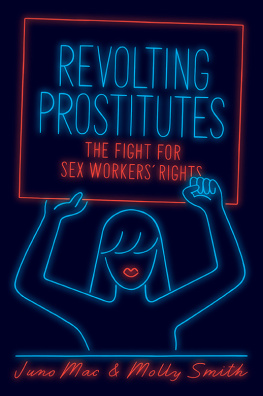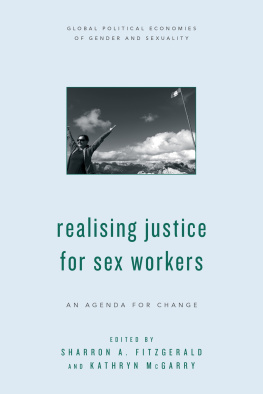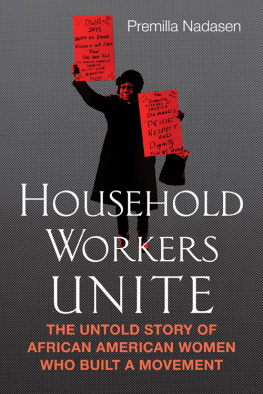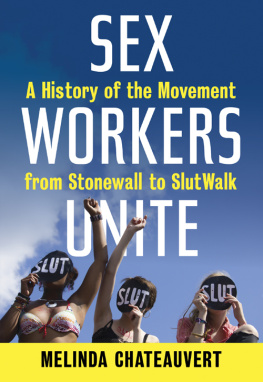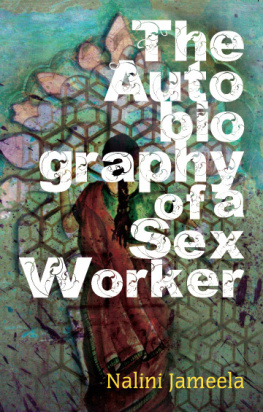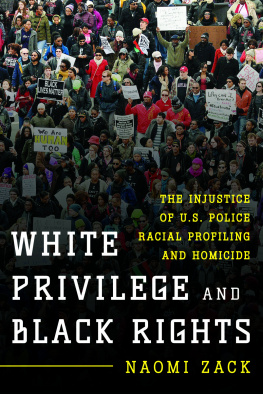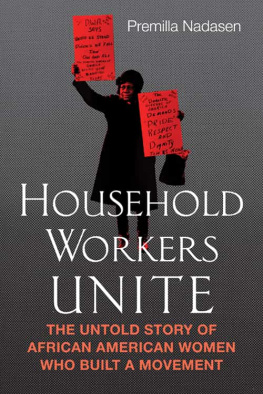Contents

Revolting Prostitutes
Revolting Prostitutes
The Fight for Sex
Workers Rights
Molly Smith
and
Juno Mac

First published by Verso 2018
Molly Smith and Juno Mac 2018
All rights reserved
The moral rights of the authors have been asserted
1 3 5 7 9 10 8 6 4 2
Verso
UK: 6 Meard Street, London W1F 0EG
US: 20 Jay Street, Suite 1010, Brooklyn, NY 11201
versobooks.com
Verso is the imprint of New Left Books
ISBN-13: 9781786633606
ISBN-13: 9781786633620 (UK EBK)
ISBN-13: 9781786633637 (US EBK)
British Library Cataloguing in Publication Data
A catalogue record for this book is available from the British Library
Library of Congress Cataloging-in-Publication Data
Names: Smith, Molly (Sex worker), author. | Mac, Juno, author.
Title: Revolting prostitutes : the fight for sex workers rights / Molly Smith and Juno Mac.
Description: London ; Brooklyn, NY : Verso, [2018] | Includes index.
Identifiers: LCCN 2018032847| ISBN 9781786633606 | ISBN 9781786633637 (ebook)
Subjects: LCSH: ProstitutesCivil rights. | ProstitutionGovernment policy.
Classification: LCC HQ118 .S65 2018 | DDC 306.74dc23
LC record available at https://lccn.loc.gov/2018032847
Typeset in Sabon by MJ & N Gavan, Truro, Cornwall
Printed in the UK by CPI Group
For Sharmus, Paula, Mariana, Daria, Jessica, Luciana,
Tania, Gemma, Anneli, Annette, Romina, Emma,
Rivka, Lenuta, Jasmine, Xiao Mei, Bonnie, Shirley
The women who are really being emulated and obsessed over in our culture now strippers, porn stars, pinups arent even people. They are merely sexual personae, erotic dollies from the land of make-believe. In their performances, which is the only capacity in which we see these women we so fetishize, they dont even speak. As far as we know, they have no ideas, no feelings, no political beliefs, no relationships, no past, no future, no humanity.
Ariel Levy
When you consider how expansive something like prostitution really is, it should be alarming that we rarely hear the actual voices of people who have firsthand experience in this industry. When I think about the relevance of prostitution in social movements as well as its stark exclusion from them, I cannot help but wonder about the compelling opportunity for linkage, about the aspects of radical social justice movements that parallel the prostitution rights movement, that of visibility, autonomy and equanimity from the ground up.
Pluma Sumaq
Contents
Sex workers are everywhere. We are your neighbours. We brush past you on the street. Our kids go to the same schools as yours. Were behind you at the self-service checkout, with baby food and a bottle of Pinot Grigio. People who sell sex are in your staff cafeteria, your political party, your after-school club committee, your doctors waiting room, your place of worship. Sex workers are incarcerated inside immigration detention centres, and sex workers are protesting outside them.
Although we are everywhere, most people know little about the reality of our lives. Sex workers are subject to a lot of curiosity and discussion in popular culture, journalism, and policy. When we are visible as workers on the street, in signposted brothels, in digital spaces our presence provokes disquiet. We are increasingly visible as workers in political spaces, and here too our presence provokes disquiet. Many people want to stop us from selling sex, or fix the world so we dont need to, or just ensure they dont have to look at us. But we are notoriously hard to get rid of, at least through criminal law.
Prostitution is heavy with meaning and brings up deeply felt emotions. This is especially the case for people who have not sold sex, and who think of it in symbolic terms. The idea of prostitution serves as a lightning rod for questions about work, masculinity, class, bodies; about archetypal villainy and punishment; about who deserves what; about what it means to live in a community; and about what it means to push some people outside that communitys boundaries. Attitudes towards prostitution have always been strongly tied to questions of race, borders, migration, and national identity in ways which are sometimes overt but often hidden. Sex work is the vault in which society stores some of its keenest fears and anxieties.
Perhaps the most difficult questions raised by prostitution involve what it means to be a woman in a patriarchal society. Feminist writer Kate Millett notes feminist rhetoric suggesting that all women are prostitutes, that marriage is prostitution. They noted that this interest in the metaphorical uses of prostitute was not accompanied by much practical support for sex workers efforts to tackle criminalisation.
In some ways, little has changed. Contemporary feminists disapproval of prostitution remains unmoored from pragmatism. More political energy goes to obstructing sex work than to what is really needed, such as helping sex workers avoid prosecution, or ensuring viable alternative livelihoods that are more than respectable drudgery. As trans sex worker community leader Ceyenne Doroshow has said: If you dont want sex workers doing the work, sweetie, employ them! Employ them, have a solution!
Our concern is for the safety and the survival of people who sell sex. Like Doroshow and PROS before us, we are ultimately focused on the practical and material rather than the symbolic or metaphorical. Approaching sex work from this perspective provokes certain questions. What conditions best enable someone who wants to quit sex work to do so? What conditions lead people to sell sex, or make sex work their only opportunity for survival? What gives a sex worker more power in negotiating with an employer, and what reduces their power? All over the world, sex workers use strategies to stay safe: working with a friend in the next room, or in a small group on the street; visibly noting down a clients car number plate or asking for his ID, to show him that he is not anonymous. Can a sex worker call a colleague in as back-up if a client refuses to use a condom? What are the consequences of calling the police or of being visible to them as a gaggle on the street? What does it mean for a sex worker when their client or manager is afraid of the police? Who is at risk of deportation and homelessness, and why? These are the kinds of questions questions about peoples material conditions that concern us, as authors and as sex workers.
This Is Not a Memoir
This book and the perspective of the contemporary left sex worker movement is not about enjoying sex work. This book will not argue that sex work is empowerment. We are not interested in making an argument around sexual freedom or the supposed capacity of the sex industry to facilitate sexual self-actualisation for workers or for clients. Despite the expectation that sex workers will tell our stories, this is not a memoir and we will not be sharing any sexy escapades. (Although, as the founders of sex worker magazine $pread told a journalist at the launch of their first issue, Its not intended to arouse but people are turned on by all kinds of things, so maybe someone will be turned on by sex workers fighting for social justice.) Nor as we will unpack over the course of this book are we uncritical of what work means in a context of insatiable global capitalism and looming environmental catastrophe.
Sometimes people who support sex workers rights attempt to show their support by arguing that the sex industry is not actually a site of sexism and misogyny an argument that is, in our view, misplaced. The sex industry is both sexist and misogynist. We do not argue that nobody experiences harms within sex work, or that these harms are minimal and should be disregarded. On the contrary, the harms that people experience in sex work such as assault, exploitation, arrest, incarceration, eviction, and deportation are the

